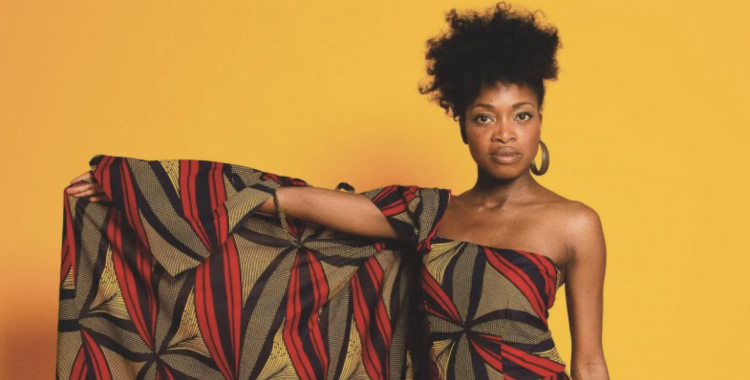"I think my music crosses several things because it reflects who I am, because I was born in Angola, I stayed there until I was six, then I lived in Portugal until I was 12 and, from there, I was adopted by a French mother. I live in France, where I was introduced to Brazilian culture since I was 16, first with dance, percussion, then with singing", explained the singer to Lusa, during the international music fair Womex, which closed on Sunday, in Porto.
The space of music in her life was something she was "discovering", like everything else.
After the EP "Ao Descobrir o Mundo", released in 2011, came the affirmation album, "Kuzola", in 2016.
"Kuzola", which means love, in Kimbundu, a language spoken in northwestern Angola, emerged from this search.
It was released with a documentary that portrayed the singer's return to the country where she was born, about 30 years after she left.
"When I went, after 30 years, to Angola, I was very excited about returning to Africa, waiting for something to change in me, looking for something important. It was great because I reconnected with my land, with family, with my father, whom I hadn't seen for a long time, but when I came back, I had the impression that nothing special had changed," he says.
The answer would come later: "Two weeks later, I woke up to the image of a flower. A flower with the Angolan root, the stem was Portugal, the flower Brazil, and France is the ground that allowed all this to grow."
"That alone was a very important image, because it allows us to perceive and accept the mestizaje that I am, accept that I am not 100 percent Angolan, I am not French, I am not Brazilian, my culture is, really, a mestizaje".
Now, she is preparing to release "Pwanga", her second album, for which she had the support of French producer Zamora.
"On this new album, there's something that has changed a lot in my life: I'm now a mother of two boys – and 'there's a song that talks about this discovery, the pregnancy, the questions that arise: where do you come from, the what are you going to do with you, how are we going to be happy together?"
She wrote the text during her pregnancy and asked an Angolan poet to translate and make a version in Kimbundu, which resulted in the theme "Saeli".
Another of the stories included in this new project is a demonstration of strength by women farmers from Mumanga, Angola, who wrote "such a beautiful text, it made me want to put it to music".
The theme is called "Phowo", which means woman, and was born from a project by a friend who went to Angola to work on the self-esteem of these women.
"I liked this text. It has a strength, it has a sweetness, it has a natural affirmation of being. I liked that intensity, that powerful intensity, but soft."
For songwriting, she relinquished some of the control she had had on the first album.
The guitarist, Edouard Heilbronn, who is also her partner, deals with "the part of the guitars, the bass, the melodies", while Lúcia conceives "the ideas around percussion".
"Then we talk together, we have to negotiate", she laughs, before adding "in life, as in work".
"The luck is that we manage to have a lot of respect and end up letting go. We are at the service of music and the musicians who will play the music are the ones who influence the music a lot. We play what we know, but the musicians also play a big part. from creation".
And there were several, starting with the Brazilian percussionist José Luís Nascimento, "who worked with Mayra Andrade, with Tito Paris".
They also came to Lisbon in search of "a more Angolan influence, played by Angolans", which is why they contacted Betinho Feijó, guitarist of Bonga, who participated in two songs, and brought along percussionist Galiano Neto.
From Brazil came the collaborations with the singer Anna Tréa and with Chico César.
In France, they found a group of gospel and African music, which brought an "important" dimension of choir.
"I think the voice, and the emotion that conveys the voice, is very important. It's not easy to find, because my music is very rhythmic. These people there did an incredible job in terms of voice."
With this album, "the primary objective, as a soul that is living in this body, is that many souls, many people, can hear and feel the connection, because the album is called "Pwanga", which means light".
The album's name comes from a story of the friend who worked with the women of Mumanga, who, at the end of the trip, "wanted to take a picture with everyone, but as no one smiled, she asked the translator what she had to do. for people to smile".
"He said he has to ask 'pwanga ni pui?', does that mean 'light or darkness?'"
Lúcia de Carvalho was present at the international music fair of the world Womex, which ended on Sunday, but had, for five days, in Porto, more than 200 stands and 60 artists, with delegates from around 100 countries.
This year's edition, according to the organization, mobilized around 2600 professionals in Porto. The next edition, in 2022, will take place in Lisbon.







